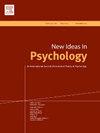关键决策:连接关键反思和行动
IF 2.9
3区 心理学
Q2 PSYCHOLOGY, EXPERIMENTAL
引用次数: 0
摘要
个体可以通过批判意识将自己和他人从压迫中解放出来,批判意识包括批判反思(即对系统性压迫的意识)和批判行动;两者都是系统性变革的必要条件。然而,反思并不总是导致行动。大多数学者认为一个人的批判动机(即实施社会政治变革的兴趣和效力)是批判性反思和行动的桥梁。鉴于批判意识沉浸在道德问题中,本文将道德推理和决策框架与批判意识文献相结合,以阐明鼓励或阻碍实践的心理过程。这样做强调了对一种新的关键意识组成部分的需求:关键决策,包括确定行动目标,决定是否以及如何行动,计划行动步骤,以及解决行动障碍。本文描述了关键决策过程,并为未来的研究提供了方法建议,以检查关键决策。将关键决策作为关键意识的一个组成部分,使未来的研究人员能够提出和回答新的问题,这些问题可以提供对实践的更深入的理解,并为寻求改变压迫制度的努力提供信息。本文章由计算机程序翻译,如有差异,请以英文原文为准。
Critical decision-making: Bridging critical reflection and action
Individuals can liberate themselves and others from oppression through critical consciousness, which involves critical reflection (i.e., awareness of systemic oppression) and critical action; both are necessary for systemic change. However, reflection does not always lead to action. Most scholars consider one's critical motivation (i.e., interest and efficacy in enacting sociopolitical change) to bridge critical reflection and action. Given that critical consciousness is steeped in issues of morality, this paper integrates moral reasoning and decision-making frameworks with critical consciousness literature to elucidate the psychological processes that encourage or discourage praxis. Doing so highlights the need for a novel critical consciousness component: critical decision-making, which involves determining an action goal, deciding if and how to act, planning action steps, and problem-solving barriers to action. This paper describes critical decision-making processes and offers methodological recommendations for future research to examine critical decision-making. Including critical decision-making as a component of critical consciousness enables future researchers to ask and answer new questions that can provide a deeper understanding of praxis and inform efforts that seek to transform oppressive systems.
求助全文
通过发布文献求助,成功后即可免费获取论文全文。
去求助
来源期刊

New Ideas in Psychology
Multiple-
CiteScore
4.80
自引率
3.80%
发文量
37
期刊介绍:
New Ideas in Psychology is a journal for theoretical psychology in its broadest sense. We are looking for new and seminal ideas, from within Psychology and from other fields that have something to bring to Psychology. We welcome presentations and criticisms of theory, of background metaphysics, and of fundamental issues of method, both empirical and conceptual. We put special emphasis on the need for informed discussion of psychological theories to be interdisciplinary. Empirical papers are accepted at New Ideas in Psychology, but only as long as they focus on conceptual issues and are theoretically creative. We are also open to comments or debate, interviews, and book reviews.
 求助内容:
求助内容: 应助结果提醒方式:
应助结果提醒方式:


